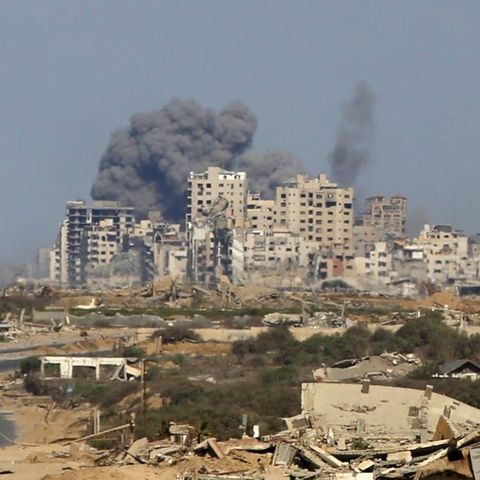China’s property boom was based on an “unsustainable” model that benefited local governments and encouraged people to invest most of their savings in property, Soros said.
Government policies designed to curb the boom made it difficult for the real estate giant to pay off its debts. evergreat, he added.
The property developer is reeling under more than $300 billion in total liabilities, including some $19 billion in offshore bonds held by international asset managers and private banks on behalf of its clients. Evergrande has been struggling for months to find cash to pay off lenders.
Government officials have been sent to the company to oversee a restructuring, but there is little clarity about what comes next. Evergrande has asked for more time, but some lenders seem unwilling to wait. On Sunday, the company said receivers had been appointed over a parcel of land in Hong Kong, which it had put up as collateral for a $520 million loan last year.
“It remains to be seen how the authorities will handle the crisis,” Soros said during a roundtable on China’s developments and how the United States should respond. “They may have put off dealing with it too long, because people’s confidence has already been affected.”
In recent years, Soros has become a leading critic of Xi and China’s ruling Communist Party. The legendary investor and chairman of the Open Society Foundations said in September that asset manager BlackRock was making a “tragic mistake” by doing more business in China. Soros has also criticized Beijing for its surveillance policies and crackdown on private business.
China’s president is now facing real estate market risks, according to Soros, who was speaking just days before the start of the Winter Olympics in Beijing.
Falling prices “will turn many of those who invested most of their savings into real estate against Xi Jinping,” Soros said, adding that the current situation “does not look promising.”
“Xi Jinping has many tools available to restore confidence, the question is whether he will use them properly,” Soros said.
Analysts have long worried that Evergrande’s collapse could trigger broader risks to China’s property market, hurting homeowners and the broader financial system. The real estate sector and related industries account for up to 30% of the country’s GDP.
China’s economy grew 8.1% last year, far exceeding government targets. But the weakening of growth in the final months of 2021 suggests that the housing crisis, new outbreaks of covid and Beijing’s strict approach to controlling the virus are taking their toll.
The International Monetary Fund expects economic growth to slow sharply to 4.8% in 2022.
Source: Ambito
David William is a talented author who has made a name for himself in the world of writing. He is a professional author who writes on a wide range of topics, from general interest to opinion news. David is currently working as a writer at 24 hours worlds where he brings his unique perspective and in-depth research to his articles, making them both informative and engaging.




